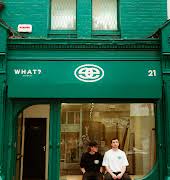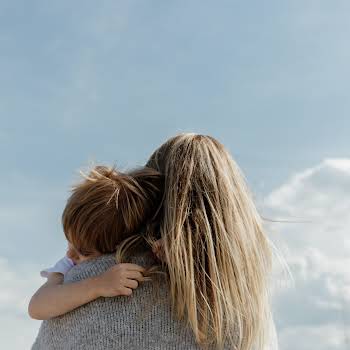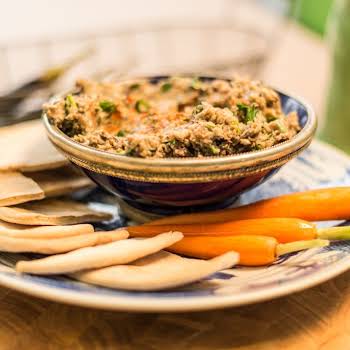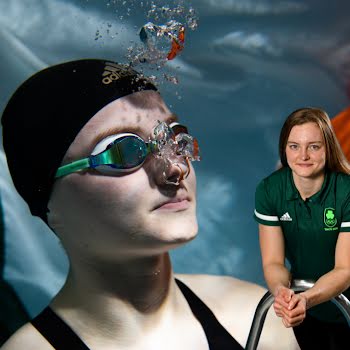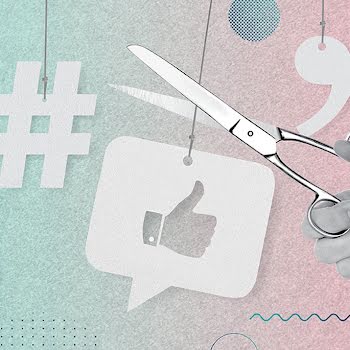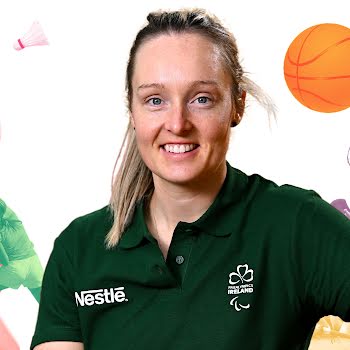
By Niamh Ennis
27th Feb 2021
27th Feb 2021
I used to be very good at listening to my gut instinct, but somewhere along the way, possibly when I had my first experience of real loss, I totally lost this skill. Here's how I found my way back.
When anything challenging happens in your life, perhaps a breakup, an illness, the death of someone close or a redundancy, you experience a trauma of sorts. It’s not always obvious, even to you, and yet it can have quite a serious and lasting impact.
People who grieve talk about how months on just how tired they feel, how they find it so hard to concentrate on things that previously gave them joy, like reading; those recovering from serious illness talk about the fear they now live with of any, or all, future illnesses, and those who were let down, or betrayed by someone they loved, now reluctantly feel suspicious of everyone.
Similarly, when we experience trauma, we tend to move quickly into operational mode. We allow ourselves to get caught up in the detail, either to distract us from reality or we move heaven and earth to control everything and everyone that we allow into our environment.
Advertisement
Before we know it, we are living our lives entirely from our heads, the place where we manage and control, where we rely on our to-do lists and planning becomes such an integral part of our everyday life.
Why do we this?
Simply, because it feels so much safer.
Something has happened that has given us cause to feel less safe. We may feel abandoned or lost, even a little helpless. By living and operating solely from our heads we are doing all we can now to avoid a recurrence. We fool ourselves into believing that this is about self-preservation when in reality we have simply gone into hiding.
When we open ourselves back up and reconnect with our heart and soul space, that’s the moment when good things will start to happen for us again. That’s when we start to really feel and acknowledge that in this very space, life’s possibilities and opportunities exist and we give ourselves permission to feel them.
Advertisement
We all know that feeling when you’re flying through your to-do list, ticking things off one by one. But when you get to the end, it never ever feels as you expected.
If you’re being honest you’d say that it left you feeling a little empty.
There are many ways that we can begin to reconnect our heads with our hearts. Daily practices that will get you to slow down and listen to what’s happening inside such as breathwork, meditation, journaling, nature and yoga are among some of the most effective ways.
It’s definitely a case of finding what works best for you and not being influenced by what others are doing. Ask what do you enjoy doing? What helps you to slow down and pause? What makes you feel less like you’re in your head and more like you’re living in all of your body?
Advertisement
Feel the Feelings
When we are in our heads we can only think thoughts, but we need to train ourselves to think our feelings.
“This has happened to me, I think I’m angry, I think I feel sad, I think I should be upset by what they just said, I think I should overreact.” These are thoughts, not feelings.
But in our heart space, we connect with our real feelings. “I feel anxious that I will lose someone else, I’m not good enough, I feel worried that I’ll never be able to change my life and will have to settle for this. I feel guilty, I feel loved, I feel abandoned.”
Advertisement
The more we reconnect with this deep feeling, part of ourselves the more we learn just how to rebuild our faith in our own abilities. We learn that we need to re-write our own story and become more confident. In doing so, we get reacquainted with our intuition.
Our intuition is our immediate understanding of something; when there’s no need to think it over or get another opinion, we just know. And not lonley do we just know but we trust that we know.
Learn to trust yourself
Learning to trust ourselves is the greatest sign that we are feeling more confident about who we are becoming and we are reconnecting with who she is.
Trusting our intuition is the ultimate act of trusting ourselves.
Listening to our intuition helps us to avoid finding ourselves in unhealthy situations, so pay attention to that niggle that something doesn’t feel right. I always think of my intuition as a feeling, which means it can of course be good or bad. But it’s unrelated to what the world tells me, it’s always what I feel in myself and about myself.
For most of us, when we have a really important decision to make, we naturally look outside of ourselves for the answers. We go in search of advice from our friends and family. Yet we forget to consult the most important authority of all – our own intuition.
Now when I have a decision to make or a question to answer I sit with it. I wait to hear what comes up for me. I ask my body how it will feel if I say yes to this decision or if I say no to it. I observe both responses. More often than not it tells me exactly what I need to hear in that moment. That’s the power of surrendering to your intuition.
Advertisement
How to Develop your Intuition
- Recognise when your intuition is calling to you
You must be able to recognise it when it speaks to you. Intuition usually isn’t loud and can be extremely subtle so listen carefully. It may start as a hunch or it may speak to you physically via discomfort in your gut, or a feeling of relief or unease.
Put it this way, if you’ve ever felt that you knew something to be absolutely true in the depths of your heart, or soul, the chances are this was a direct message from your intuition.
- Journal, journal, then journal some more.
Think of something you want clarity on or an issue you want to contemplate. Journal writing is a highly effective way to access your intuition and one I use all the time. I recommend that you create a small amount of space each day and make a regular practice of journaling, you’ll be amazed at the clarity of what comes through and the access it gives you to your intuition.
Advertisement
- Trust yourself.
The more belief that you demonstrate in your intuition, the greater the results will be. Whether you want to make better decisions, solve problems quicker, or create winning plans for your life, you’ll reach your goals much faster and more effectively surrender to your intuition and listen to what it has to say.
Developing a strong connection with your intuition can be challenging, especially if you’ve spent a lifetime second-guessing yourself or not trusting your own decision- making skills, or if you have too many other “voices” in your head that may try to drown out your intuition. But just acknowledge that we all go through phases in our lives where we disconnect from ourselves and as a result, disconnect from our intuition.
Niamh Ennis is Ireland’s leading Change & Transformation Coach and Founder of The RESET for Change 3-Month 1:1 Private Coaching Programme. She works with women who simply feel stuck and helps them feel magnetic and connect with a sense of who they are. To discover how Niamh can help you find your direction and purpose just click here. To get you started with Journaling click here.









